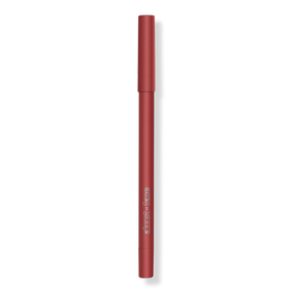
As an advocate for incarcerated people, first-year George Washington University student Lea Nepomuceno has heard former convicts detail their struggles both in correctional facilities and in society.
Since co-founding Youth For Juvenile Justice Reform, an organization that aims to shatter stigma surrounding inmates, Nepomuceno has interviewed nearly 200 people about their prison experiences. She spoke to them about the dangers they faced in jail, the agony of being separated from their loved ones and reintegration obstacles from regaining custody of children to finding jobs and housing.
But throughout the interviews, Nepomuceno, who plans to major in criminal justice and journalism at the Columbian College of Arts and Sciences, said one surprising theme appeared again and again about life behind bars: a lack of access to even the most basic hygiene products.
Whether it was staples like shampoo and toothpaste or personal items like makeup and moisturizer, hygiene and beauty items were nearly impossible to obtain during their sentences. Unable to afford the exorbitant prices at prison commissaries, they described making do-it-yourself toiletries in their cells, trading food for soap and fighting over deodorant. Some women were issued expired menstrual pads with foul odors. Others said correctional officers gave special treatment to well-groomed inmates.
“People think beauty is about vanity,” Nepomuceno said. “For these people, it’s about survival.”
Now Nepomuceno is doing her part to restore a degree of dignity to people in prison. She’s embarked on a project called Beauty Beyond Bars to confront the hygiene crisis in correctional facilities. With the help of other students, prison reform experts and an advisory board of educators, psychologists and formerly incarcerated people themselves, she’s delivering essential products to detention centers, jails and prisons—all while advocating for better conditions and reframing the way we look at the needs of incarcerated people.
“Good hygiene is a part of being human,” she said. “When you enter prison, you’re stripped of your clothing, your jewelry, the parts of yourself that make up your identity as a functioning member of society. When you add to that having extremely limited access to basic hygiene, it’s incredibly difficult to remember who you are as a person.”
A voice for change
Nepomuceno is no stranger to activism. In her San Diego hometown, she represented student voices as a member of her school district board, promoting action on sex trafficking, gun violence and climate change.
At just 13, while participating in a summer social justice program, she met a formerly incarnated woman who championed institutional reform initiatives. Her experiences opened Nepomuceno’s eyes to the hardships many face on their pathways to prison. “That conversation transformed my perspective on criminal justice,” she said.
It also inspired her to co-founded Youth For Juvenile Justice Reform in 2019. Since then, her YouTube video interviews with formerly incarcerated people have been influential with justice reform advocates. In 2022, she was named to the “Teen Vogue” list of “21 Under 21” difference makers.
Those interviews—and the stories of inmates trying to maintain personal hygiene and preserve their self-respect—also led to Beauty Beyond Bars. And while Nepomuceno said she’s faced skepticism from some who question whether prisoners deserve seemingly luxury items like makeup, she rejects the notion that “a person is their crime.”
“Far too often, incarcerated and formerly incarcerated individuals are portrayed as broken and violent. Our mission is to dismantle this false narrative,” she said.
Nepomuceno was attracted to GW as a spot where she could merge her passions with her studies. The university’s location in the heart of the nation’s capital was a perfect fit for learning how to turn her activism into action. And her criminal justice classes have helped her understand the intricacies of the legal system. In Assistant Professor of Sociology Mohana Mukherjee’s Introduction to Criminal Justice System class, Nepomuceno recently researched a project on sanitation and prison facilities, examining the challenges of menstrual injustice within Michigan’s Muskegon County Jail.
“Lea’s research reflects her commitment to exposing systemic issues and advocating for positive change,” Mukherjee said. “Her work goes beyond the confines of the classroom. She uses her platform to effect tangible change.”
Meanwhile, Nepomuceno is teaming with the California State Legislature to expand inmates’ access to culturally sensitive products such as shampoos and conditioners for people of color’s hair. She also lobbies for humanizing prison living conditions––like unshackling incarcerated pregnant women while they are giving birth and requiring facilities to make accommodations for hijabs and other religious headwear.
And in October, Nepomuceno made her first Beauty Beyond Bars delivery—traveling from Foggy Bottom back to San Diego where she dropped off 50 care packages at the Las Colinas Detention Facility. Each included donated shampoo, conditioner and soap along with lip balm and face towelettes.
“These are small things but they can make a tremendous difference in [incarcerated people’s] lives,” she said. “It’s a first step in rebuilding their dignity and self-esteem.”
This post was originally published on this site be sure to check out more of their content.








